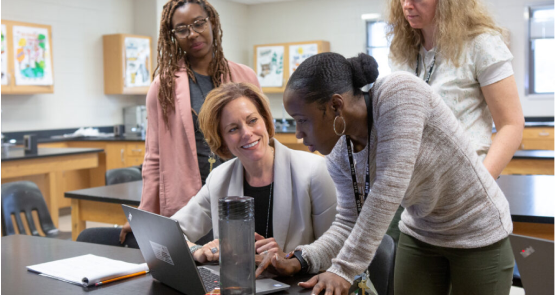FOR IMMEDIATE RELEASE
Contact: Ulrich Boser [email protected]
A new study from the Reboot Foundation shows that while the vast majority of adults believe that critical thinking is important, very few actually employ critical thinking skills when reading or researching online. And people aren’t teaching their children to do enough critical thinking, either.
At a time when there’s a growing concern about “fake news,” the study delved deep into a number of causes of the lack of critical thinking, from schools to social media to parenting.
“Critical thinking isn’t just a good skill to have – it is a requirement for people to thrive in our increasingly global and fast-paced world,” said Helen Lee Bouygues, executive director of the Reboot Foundation, a Paris-based organization devoted to critical thinking.
“This study shows that while informed reasoning and rational decision-making capacity are very much in demand, these skills are not employed by many adults,” says Bouygues. “And what’s more concerning, no one is taking up the mantle to impart such skills to the next generation. This should be a rallying cry for everyone – educators, parents, neighbors, relatives, friends – to ensure that students develop critical thinking skills.”
Here are some highlights from the study:- Less than a quarter of the public regularly seeks out views that challenge their own. Another 24 percent of respondents say they regularly avoid talking to people with opposing views.
- People believe the accuracy of more than a third of what they read on Twitter and Facebook, according to the study. What’s more, over a third of people consider Wikipedia, a crowd-sourced website, to be the equivalent of a thoroughly vetted encyclopedia.
- Only half of respondents say their schools gave them strong critical thinking skills. While parents believe that they teach critical thinking skills to their children, only 20 percent of parents frequently or very often ask their children to consider an opposing view.
- Women report doing more critical thinking skill development with their children than men do. For instance, women are about 6 percentage points more likely than men to report that they help children evaluate evidence and arguments every day.
The study was conducted using an online platform and surveyed more than 1,100 Americans. To design and implement the survey, the foundation worked with technical advisors Joe McFall of the State University of New York, Fredonia and Srikant Vadali of St. Anselm College.
Observers have hailed the study as a crucial call to action. “Critical thinking should be like oxygen for society and its members,” said Bertrand Badre, former managing director of the World Bank and World Bank Group Chief Financial Officer. “This timely report reminds us of the centrality of critical thinking at a time where a new enlightenment is what we need most.”



